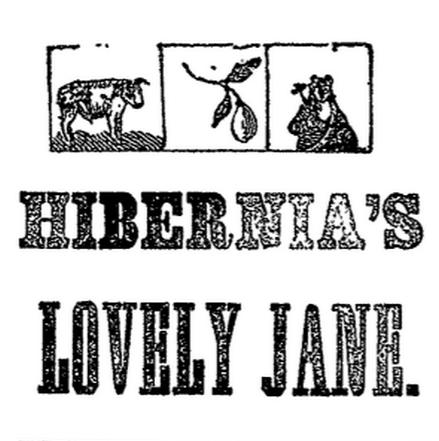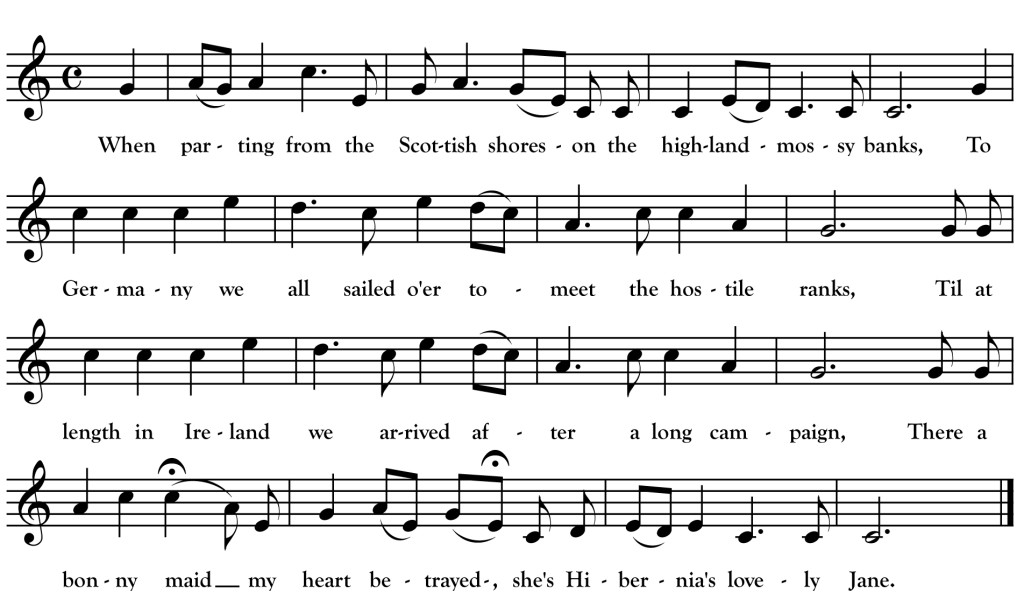The Lament of the Irish Emigrant
I am sitting on the stile, Mary, where we sat side by side,
On a bright May morning long ago, when first you were my bride;
The corn was springing fresh and green and the lark sang loud on high,
And the red was on your cheeks, Mary, and the love light in your eye.
The place is little changed, Mary, the day is bright as then,
The Lark’s loud song is in my ear and the corn is green again,
But I miss the love glance of your eye, your breath warm on my cheek,
And I still keep listening for the words you never more will speak.
It’s but a step down yonder lane, and the little church stands near,
The church where we were wed, Mary, I see the spire from here;
But the church yard lies between, love, and my feet might break your rest,
For I’ve laid you, darling, down to sleep with your baby on your breast.
I am very lonely now, Mary, for the poor makes no new friends,
But, oh, we love them better far, the few our Father sends;
But you were all I had, Mary, my blessing and my pride,
There is little left to care for now since my poor Mary died.
I am bidding you a long farewell, my Mary, kind and true,
But I’ll not forget you, darling, in the land I am going to;
They say there’s bread and work for all and the sun shines ever there,
But I’ll not forget old Ireland, were it twenty times as fair.
And oft times in those grand old woods I’ll sit and close my eyes,
And my thoughts will travel back again to the grave where Mary lies;
And I’ll think I see the little stile where we sat side by side,
And the springing corn and bright May morn when first you were my bride.
_______________________
This heart-wrenching ballad of Irish immigration comes from Minnesotan Michael Dean’s Flying Cloud songster and I have married Dean’s text with the melody sung by John W. Green of Beaver Island, Michigan. You can hear Green’s version online via the Library of Congress. The recording, made in 1938 by Alan Lomax, captures Green’s wonderful ability to vary melody and ornamentation as he sings each verse… a characteristic that is hard to capture in a transcription. I tried to “loosen up” the melody a bit in singing the song myself.
A stile is a structure that allows people, but not animals, to pass over a wall or fence, often via steps or a ladder structure. A common feature in 19th century Irish farm country, one can imagine this as an attractive perch for courting.
The last verse of this song text (which appears in some, but not all, British broadside versions as well) is intriguing in that it describes the emigrant’s destination as among the “grand old woods.” This seems to hint at the immigration pattern I so frequently discuss in this column–Irishmen coming to the north woods of North America and, often, working in the woods as lumbermen. Both singers I sourced this song from were born to Irish immigrant fathers who pursued this type of work and settled in small lumber-based communities in the Great Lakes region.
The original text of this ballad was written by Lady Helena Selina Blackwood Dufferin (nee Sheridan) who was born in Ireland in 1807 and died in England in 1867. It was printed as a broadside frequently on both sides of the Atlantic throughout the mid-late 1800s. It appears in Halliday Sparling’s 1887 book Irish Minstrelsy: A Selection of Irish Songs and Ballads. Though a member of English high society her whole life, Sparling writes that Lady Dufferin’s poems “were the genuine outcome of a deep and understanding love of the people.” This poem was clearly inspired by the Great Famine. Halliday prints two verses not sung by Dean:
Yours was the good, brave heart, Mary, that still kept hopin’ on,
When the trust in God had left my soul, and my arm’s young strength was gone;
There was comfort ever on your lip, and the kind look on your brow—
I bless you, Mary, for that same, though you cannot hear me now.
I thank you for the patient smile when your heart was fit to break,
When the hunger pain was gnawin’ there, and you hid it for my sake;
I bless you for the pleasant word, when your heart was sad and sore—
O! I’m thankful you are gone, Mary, where grief can’t reach you more!




